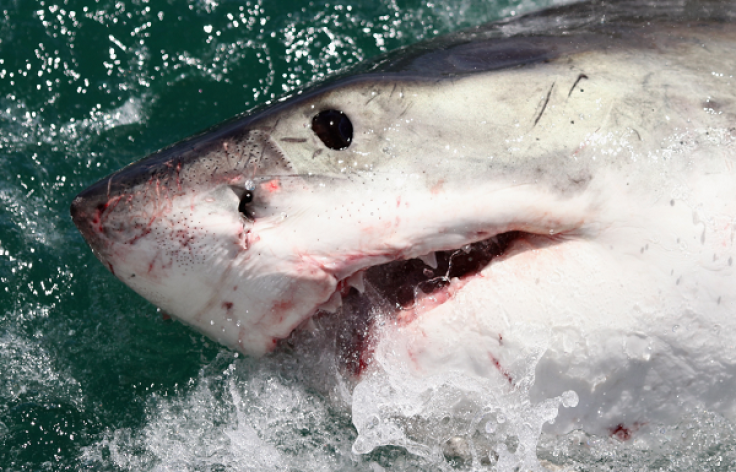Florida Sharks 2017: Mysterious Half-Eaten Fish Washes Up On New Smyrna Beach [PHOTO]

A shark washed up on a Florida beach Saturday after appearing to be partially eaten by another, larger animal, according to reports. The shark was missing its trunk and tail as well as the majority of its fins.
A Volusia County beach safety ocean rescue lifeguard shared a snapshot of the half-eaten shark washed ashore on New Smyrna Beach on Instagram Monday, instantly causing viewers to speculate over what may have taken a bite out of the creature.
Tammy Morris, a spokeswoman from Beach Safety told News 4 Jax that the shark was “definitely” attacked by a bigger fish — and, more than likely, that bigger fish was also a shark.
Officials said the shark, which could have been either a spinner or blacktip, was probably about five feet long before half of its body was eaten.
Although the sight may have been surprising to some, Morris told New 4 Jax it wasn't all that uncommon for half-eaten sharks to wash up along the coast of Florida, especially because great white sharks have been known to swim in the area. Florida Fish and Wildlife Conservation Commission said department members spotted a great white about 20 miles off Ormond Beach earlier in the month.
White #shark cruises approx. 20 NM off Ormond Beach, #Florida on Feb. 1. Three remoras hitch a ride on its pectoral fins. pic.twitter.com/jKdOG1T3WW
— MyFWC Life (@MyFWClife) February 20, 2017
Recently, officials said a shark they’ve been tracking since 2014 showed up in Southwest Florida waters. Katherine, a 14-foot-2-inch 2,300 pound great white, reappeared between West Palm Beach and the Bahamas back in January, USA Today reported. Marine biologist group OCEARCH first tagged Katherine in May 2014 near the Gulf of Mexico and have been tracking her ever since in hopes of collecting more research on great white breeding habitats.
Although officials were unsure whether Katherine or the other great white recently spotted was behind the biting of the New Smyrna Beach shark, it’s possible the half-eaten shark could have been a light snack for the carnivorous great whites. They're known to consume smaller shark species.
© Copyright IBTimes 2024. All rights reserved.












